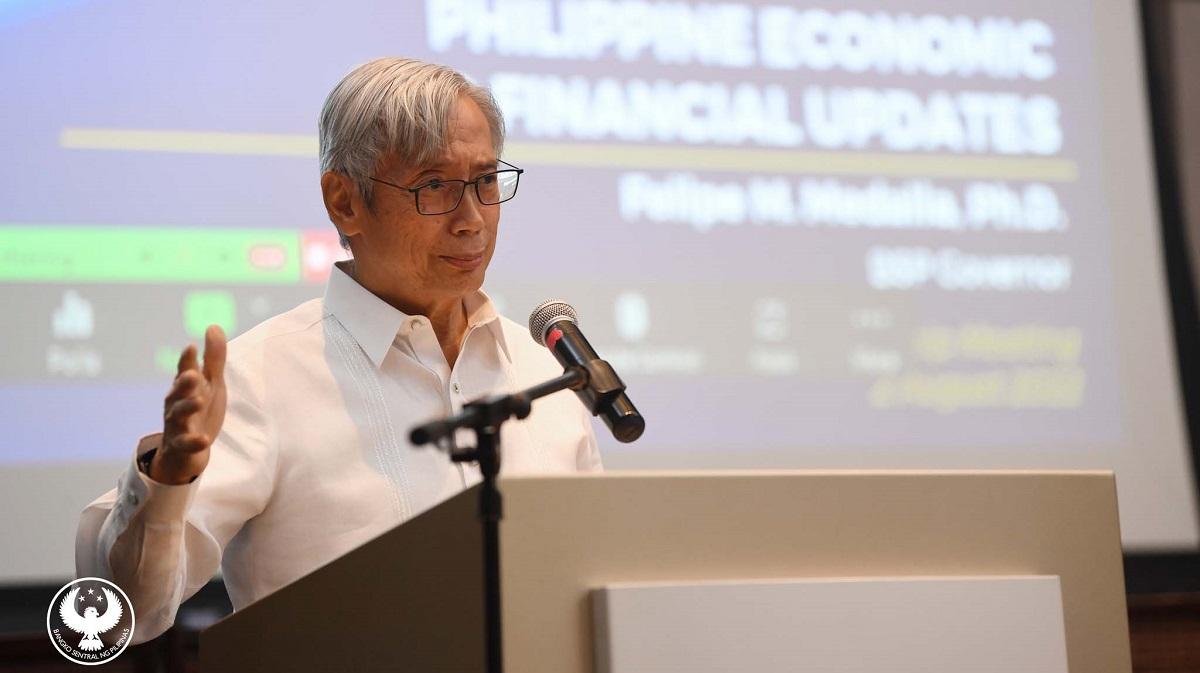BSP says it won’t allow ‘excessive changes’ in peso exchange rate

The Bangko Sentral ng Pilipinas (BSP) said that it will not allow any excessive fluctuations in the foreign exchange rate, amid the weakness of the Philippine peso.
According to BSP Governor Felipe Medalla, the central bank is already in the spot market borrowing and selling dollars “some times,” but did not elaborate on the amount and the extent.
“We will not allow excessive changes in the exchange rate… because changes in the exchange rate are either due to a strong dollar or a weak peso and vice versa,” he told reporters on the sidelines of the Bankers Night.
Medalla said the BSP already offered dollars forwards to ensure that the rates are ensured, but there was little demand.
The Philippine peso hit a fresh all-time low of P59:$1 last Monday, its 12th record low so far this year, with further policy tightening expected in the United States.
Medalla said the US Federal Reserve is likely to do two more hikes of 75 basis points, and one with 50 basis points.
“If that happens, we have to respond, but exactly how big the response is depends on the data,” he said.
“We may or we may not be [locked in step], it depends on the data. What I’m saying, it’s impossible that we will have zero response, but it’s also not necessarily wise to respond 100% point by point,” he added.
The Monetary Board of the BSP is next scheduled to meet on November 17 to discuss whether or not current conditions warrant a change in monetary policy.
The Monetary Board of the Bangko Sentral ng Pilipinas (BSP) last month hiked policy rates by another 50 basis points, as it expects inflation to average 5.6% this year, higher than the target range of 2% to 4%.
Prior to this, it already raised rates by 50 basis points in August, 75 basis points in an off-schedule hike in July, and 25 basis points each in June and May.
Medalla in the same interview also ruled out the possibility of another off-cycle hike for the rest of the year.
“We must always look at the interest rates relative to inflation. Relative to inflation, interest rate is lower, so in real terms, it has reached a net high,” he said.
“However, our forecast is inflation will fall close to 3% in the end of next year so when that happens, the current interest rates are not too low anymore,” he added.
Inflation accelerated to 6.9% in September, faster than the 6.3% print in August and the central bank’s 2% to 4% target range. — BM, GMA News



